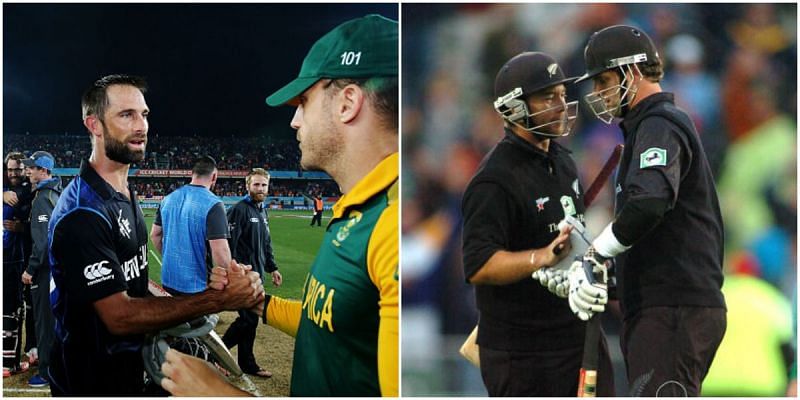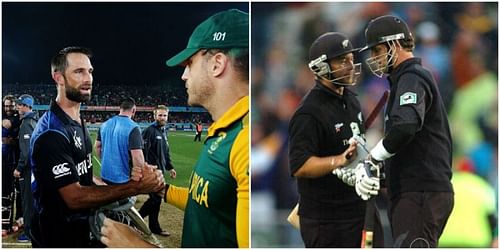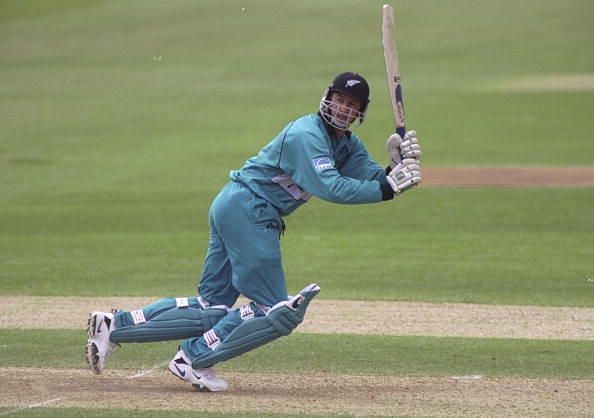
Top 5 ODI finishers from New Zealand

The art of finishing the innings is one of the most incredibly challenging aspects of limited-overs cricket. In particular, the intricacies of the 50-over format demand an innate sense of manoeuvring the field and finding myriad ways to keep the scoreboard ticking. While batting in the top-order requires consistency, coming into the middle during the business stages of the innings becomes a gruelling examination of temperament.
Also Read: Top 5 ODI finishers from England
In this segment, let us take a close look at five of the best finishers produced by New Zealand in ODIs. Traditionally, the Black Caps have played their most dynamic batsmen in the lower middle-order. In order to provide an accurate reflection of each player's prowess, only runs scored from batting positions five and six are taken into consideration. The players are enumerated on the basis of impact generated and performances against world-class bowling attacks.
#5 Chris Harris

With his versatile batting and dibbly-dobbly bowling, Chris Harris was an extremely valuable cricketer in the ODI arena during the 1990s. Adding his sparkling fielding into the equation, he was an all-round package for the Kiwis. He is one of only six cricketers to complete the double of 4000 runs and 200 wickets in the history of the 50-over format. The left-hander's penchant for finding even acute gaps in the field made him a difficult customer for opposition captains.
Harris got to bat at number five or six on 76 matches in his 14-year ODI journey. On those occasions, he scored 1634 runs at an average of 27.23 with one century and five fifties. A seemingly low strike-rate of 66.36 does not give a fitting reflection of his white-ball game. One has to consider the quality of bowling as well as nature of pitches during his era before arriving at a conclusion. The southpaw's 124-ball 130, albeit in a losing cause, put a strong Australian bowling attack to the sword in the quarter-finals of the 1996 World Cup.